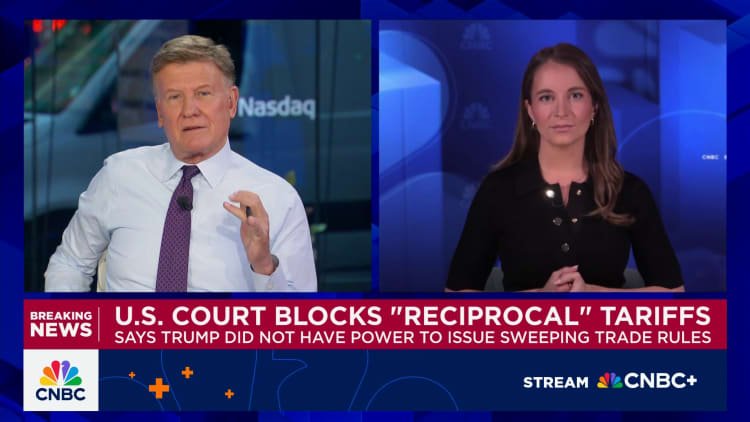In a landmark 7-4 ruling, the U.S. Court of Appeals declares Donald Trump’s global reciprocal tariffs illegal, rejecting his use of the IEPA. Tariffs remain in effect until October 14 pending a potential Supreme Court appeal.
Full Article:
Federal Circuit Court Strikes Down Trump’s “Reciprocal Tariffs” as Unlawful, Citing Misuse of Emergency Powers
Washington, D.C. — In a major legal blow to former President Donald Trump, the United States Court of Appeals for the Federal Circuit has ruled that his so-called “reciprocal tariffs” against foreign nations are unlawful. The 7-4 en banc decision marks a definitive legal stance against Trump’s interpretation of presidential authority under the International Emergency Economic Powers Act (IEEPA).
The court’s majority opinion stated that the IEEPA does not authorize the president to unilaterally impose tariffs, even under a declared national emergency. According to the ruling, the IEEPA allows for sanctions and certain economic measures but does not permit the imposition of tariffs as Trump attempted.
The tariffs, branded by Trump as “reciprocal” and targeted at multiple countries, were enacted under the claim that a national emergency existed involving virtually every nation. The court strongly rejected that rationale.
“The IEEPA was not intended to serve as a blanket authority for unilateral tariff action by the executive branch,” the court wrote.
While the ruling is effective, the court has withheld issuing its mandate until October 14, giving Trump and his legal team time to seek an appeal at the U.S. Supreme Court. Until that deadline passes—or the Supreme Court intervenes—the tariffs technically remain in effect.
The case has been closely watched since the Court of International Trade initially ruled the tariffs unlawful. Today’s decision confirms that finding and escalates the legal and political stakes heading into a critical election season.
This ruling could have significant implications for future uses of emergency economic powers by the executive branch, and potentially opens the door for global trade partners to challenge U.S. tariff policy retroactively.

